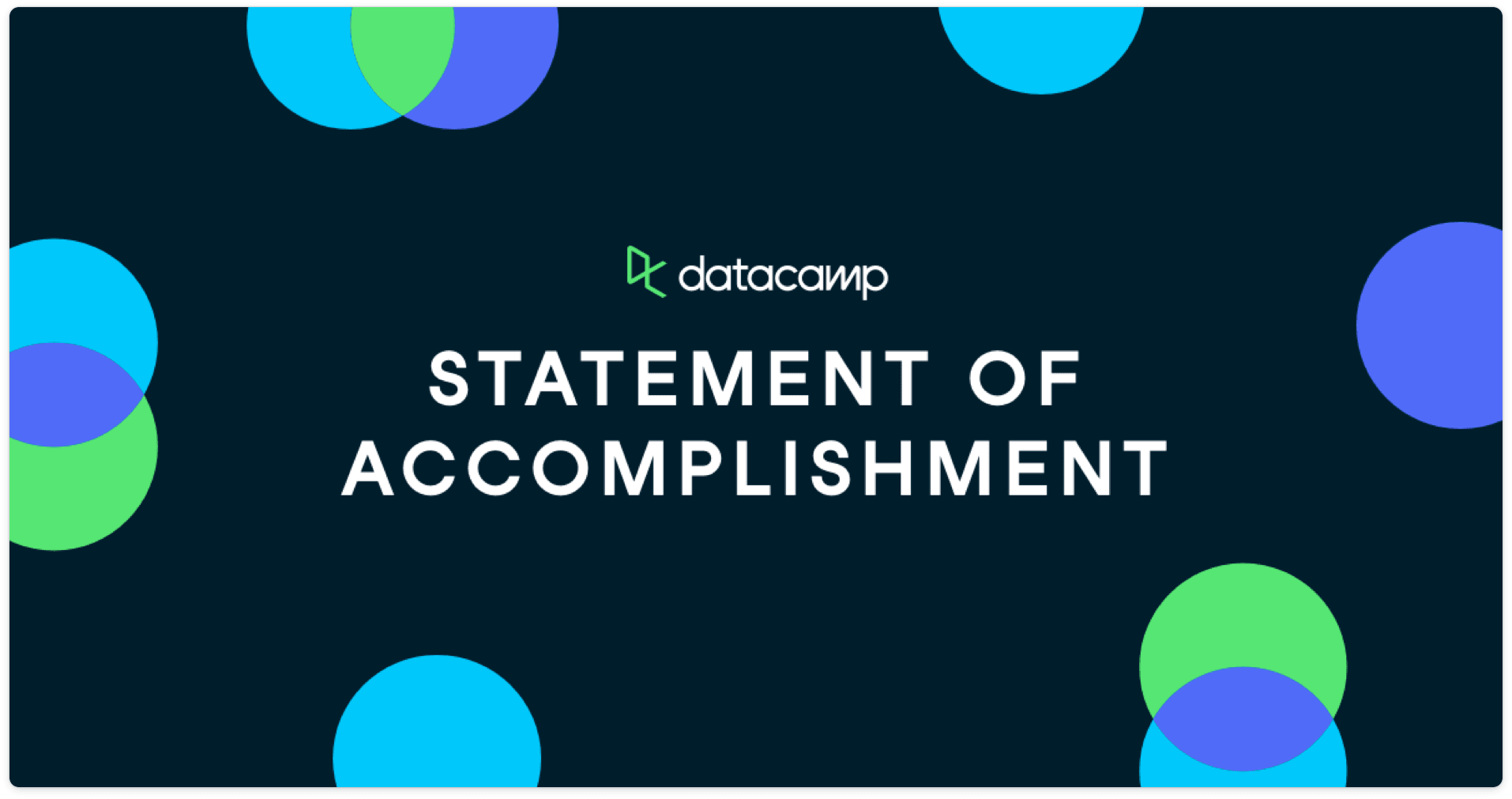Data Scientist with Python
Data Scientist with Python
1. Introduction to Python (https://www.datacamp.com/courses/intro-to-python-for-data-science)

2. Intermediate Python (https://www.datacamp.com/courses/intermediate-python)

3. Investigating Netflix Movies and Guest Stars in The Office (https://www.datacamp.com/projects/1237)

4. Data Manipulation with pandas (https://www.datacamp.com/courses/data-manipulation-with-pandas)

5. The Android App Market on Google Play (https://www.datacamp.com/projects/619)

6. Joining Data with pandas (https://www.datacamp.com/courses/joining-data-with-pandas)

7. The GitHub History of the Scala Language (https://www.datacamp.com/projects/163)

8. Introduction to Data Visualization with Matplotlib (https://www.datacamp.com/courses/introduction-to-data-visualization-with-matplotlib)

9. Introduction to Data Visualization with Seaborn (https://www.datacamp.com/courses/introduction-to-data-visualization-with-seaborn)

10. Python Data Science Toolbox (Part 1) (https://www.datacamp.com/courses/python-data-science-toolbox-part-1)

11. Python Data Science Toolbox (Part 2) (https://www.datacamp.com/courses/python-data-science-toolbox-part-2)

12. Intermediate Data Visualization with Seaborn (https://www.datacamp.com/courses/intermediate-data-visualization-with-seaborn)
13. A Visual History of Nobel Prize Winners (https://www.datacamp.com/projects/441)

14. Data Manipulation with Python](https://www.datacamp.com/signal)
15. Introduction to Importing Data in Python (https://www.datacamp.com/courses/introduction-to-importing-data-in-python)

16. Intermediate Importing Data in Python (https://www.datacamp.com/courses/intermediate-importing-data-in-python)

17. Cleaning Data in Python (https://www.datacamp.com/courses/cleaning-data-in-python)

18. Working with Dates and Times in Python (https://www.datacamp.com/courses/working-with-dates-and-times-in-python)

19. Importing & Cleaning Data with Python](https://www.datacamp.com/signal)
20. Writing Functions in Python (https://www.datacamp.com/courses/writing-functions-in-python)
21. Python Programming](https://www.datacamp.com/signal)
22. Exploratory Data Analysis in Python (https://www.datacamp.com/courses/exploratory-data-analysis-in-python)

23. Analyzing Police Activity with pandas (https://www.datacamp.com/courses/analyzing-police-activity-with-pandas)

24. Statistical Thinking in Python (Part 1) (https://www.datacamp.com/courses/statistical-thinking-in-python-part-1)

25. Statistical Thinking in Python (Part 2) (https://www.datacamp.com/courses/statistical-thinking-in-python-part-2)

26. Dr. Semmelweis and the Discovery of Handwashing (https://www.datacamp.com/projects/20)

27. Supervised Learning with scikit-learn (https://www.datacamp.com/courses/supervised-learning-with-scikit-learn)

28. Predicting Credit Card Approvals (https://www.datacamp.com/projects/558)


31. Case Study: School Budgeting with Machine Learning in Python (https://www.datacamp.com/courses/case-study-school-budgeting-with-machine-learning-in-python)



Instructors
Last updated